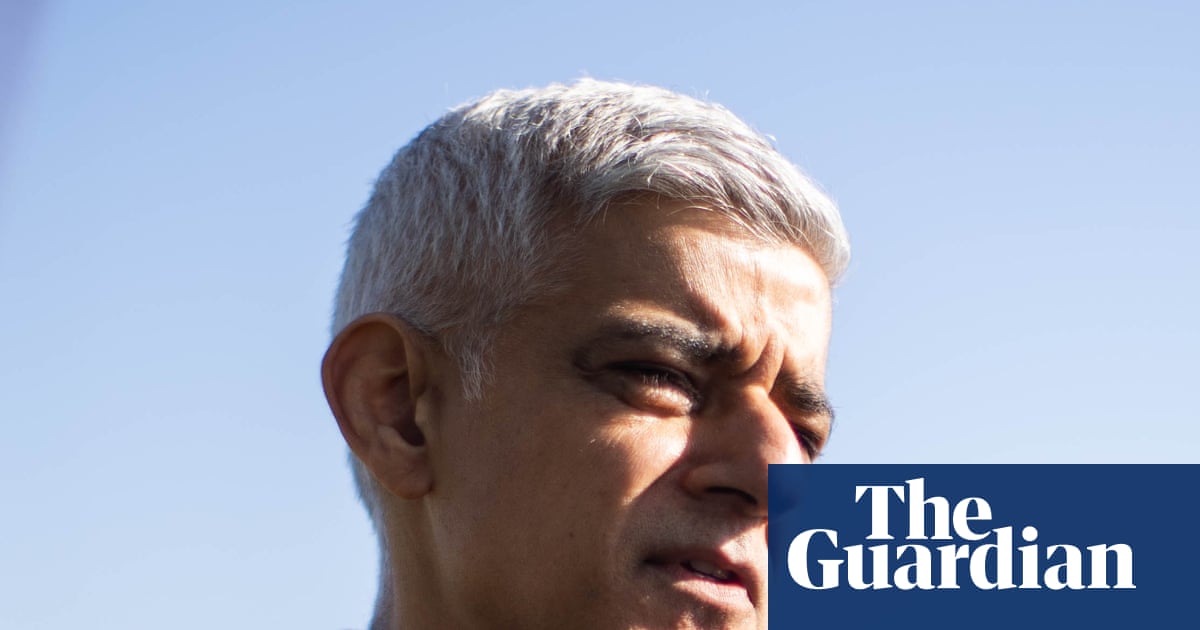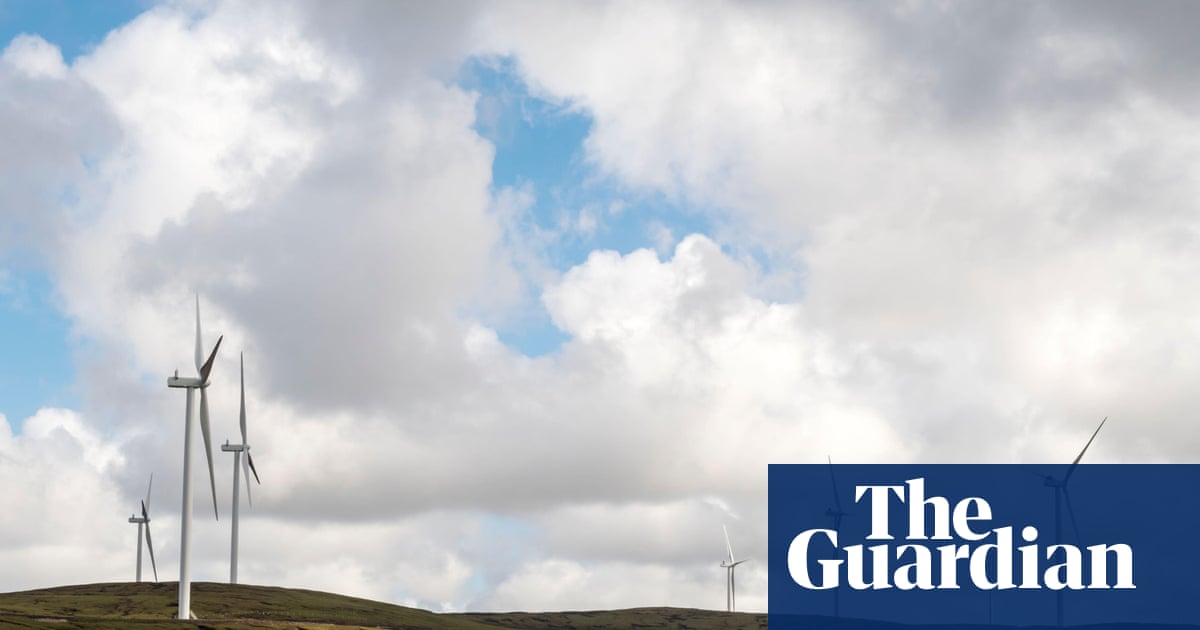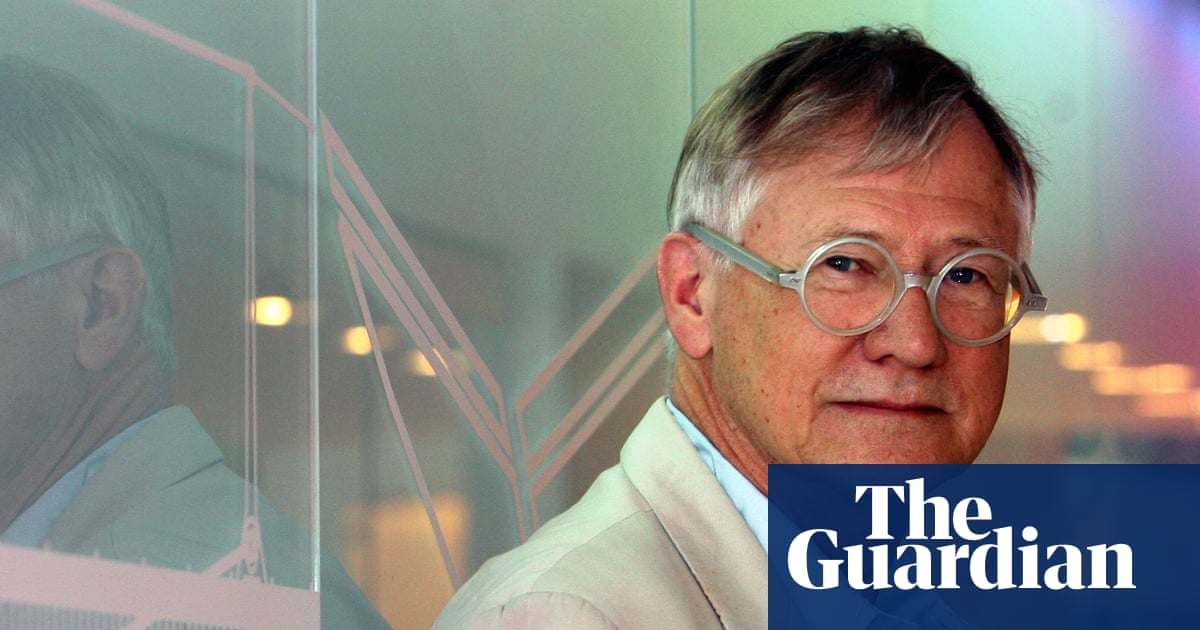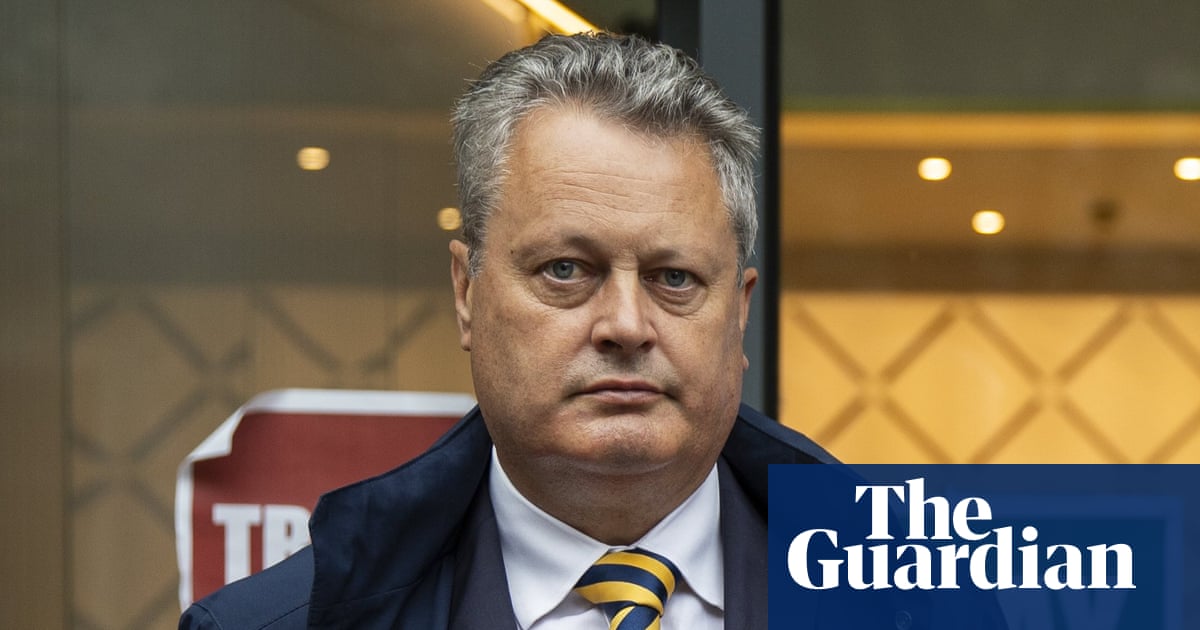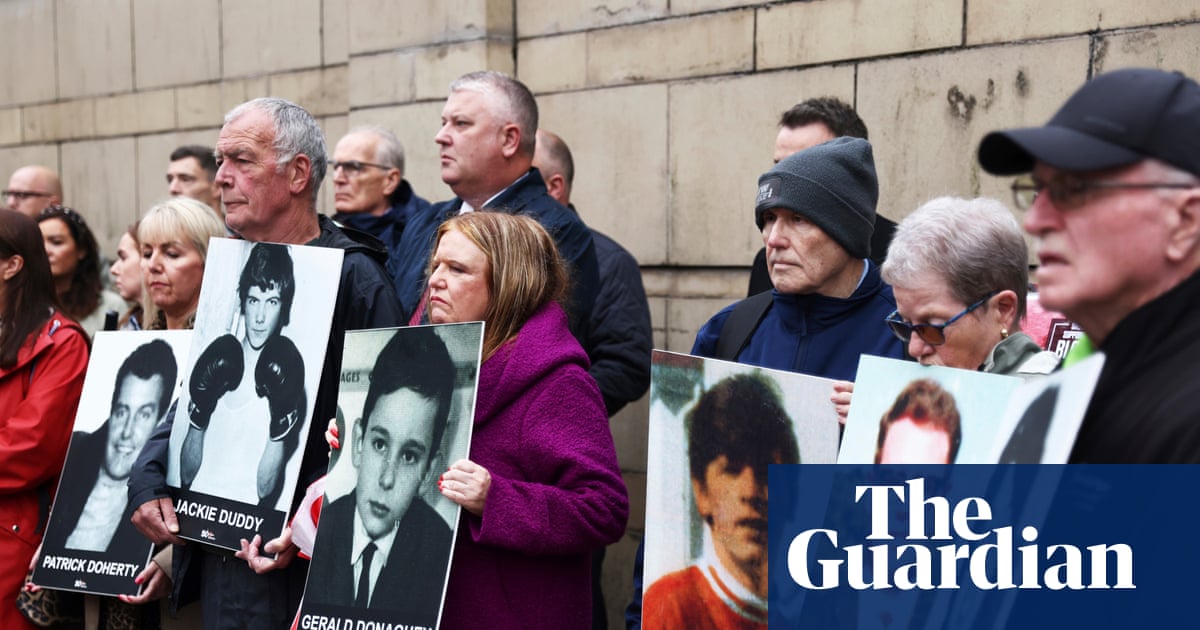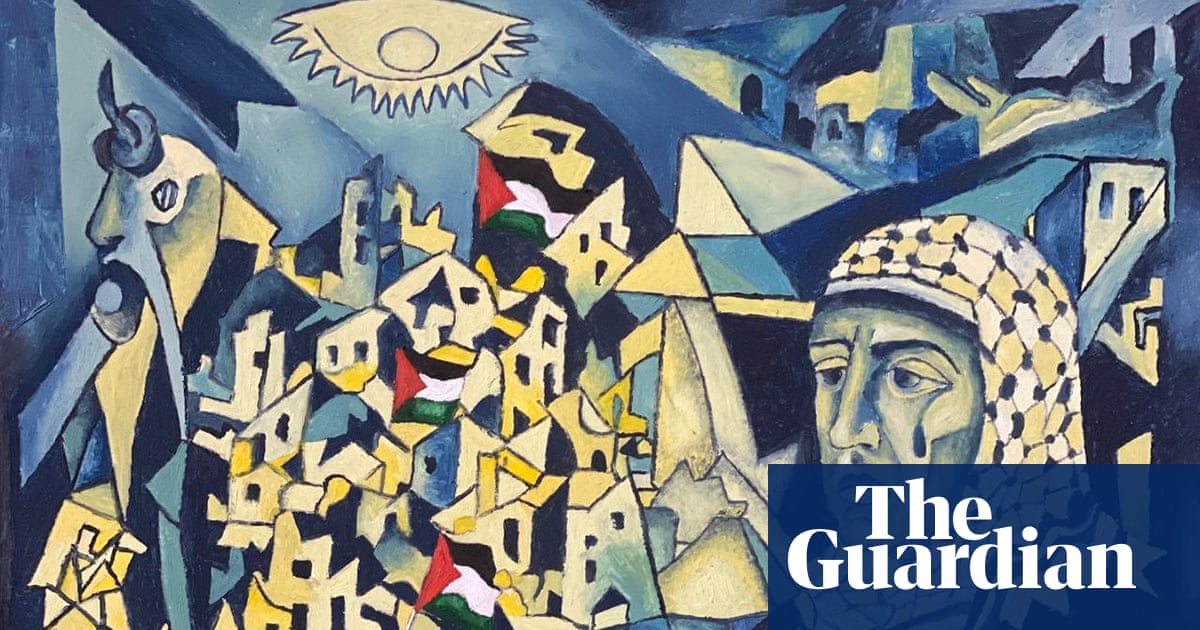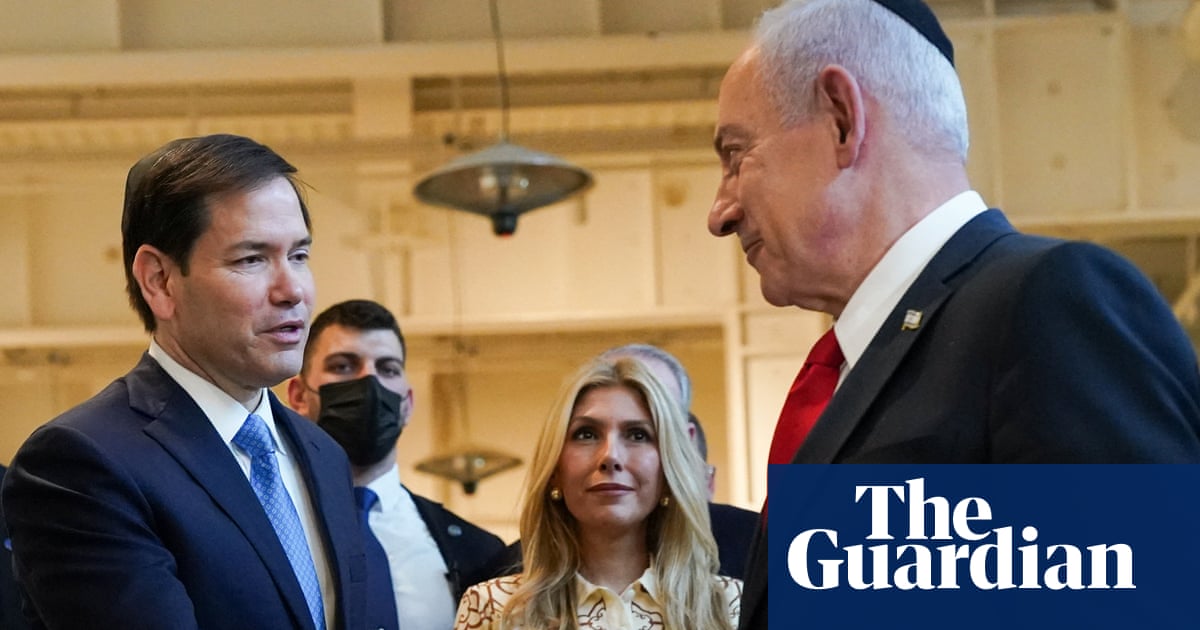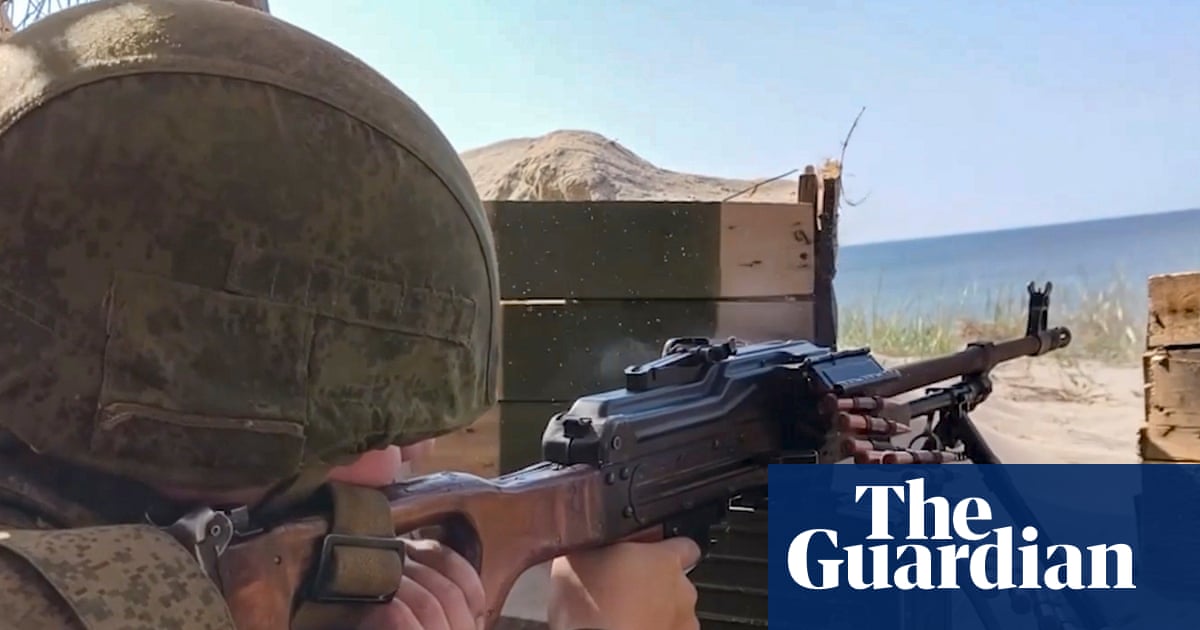In February 2004, Kate Wilson – then 25 and known to her friends as Katja – decided to make a Valentine’s card for her partner, Mark. He was an affectionate person – he would write her poems, give her gifts, text her love messages – and she wanted to reciprocate in some way. “He was quite demonstrative and I was not. That was a little bit awkward for me,” she says. “The gesture of making a card for Valentine’s Day, which to my anarchist self was soppy and commercial, was a big deal.”
More than a decade later, Wilson read the incident back, as recorded in a police log:
Sunday 15th February. 19.37 Call from Source who has received a Valentines card from Katja. This has put Source’s mind at rest re the challenges about being an undercover/informant.
For the entire course of Wilson’s 16-month relationship with “Mark Stone” – who she now knows was Mark Kennedy, an undercover police officer – their conversations, weekends away, gifts, lunches, dinners and family events were reported by him (the “Source”) to a police handler and duly logged. A trip to Ikea with her parents: “Call from Source who has left Ikea with a vehicle full of furniture and mattresses on the roof. The Wilson family are in their vehicle in front of Source.” His gift of a mountain bike just before a trip to Ireland: “REASON: Ease of transport within Dublin. Provide facility for quality time to reinforce bond/relationship. Provide joint interest.” Even the death of Wilson’s grandmother: “Source believes that they may invite Source to the funeral. I told Source that from a position of intrusion we should make excuses as to why Source does not attend.”
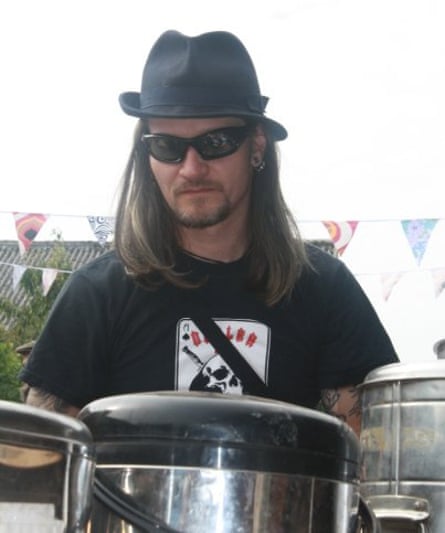
Kennedy spent seven years as an undercover police officer, infiltrating a group of environmental activists and at the same time, according to Wilson, sleeping with at least 11 women who knew him as Mark Stone. He is perhaps the most well-known of the “police spies” brought to light by Guardian reporting, who are now the subject of the long-running undercover policing inquiry.
The highly secret police policy of infiltrating protest groups stretches back decades, and targets were wide and varied. More than 1,000 groups came under its radar, including trade unions, Greenpeace, the justice campaign for murdered teenager Stephen Lawrence, a branch of Hedgehog Rescue, School Kids Against the Nazis and Eat Out Vegan Wales. Deployments typically lasted years and the officers selected were often married and settled, in order to have secure bases to return to. At least 25 formed intimate relationships and four are alleged to have fathered children with women who were unaware of their true identities.
Several of these women launched legal action, but funding challenges forced them to settle without receiving answers to their wider questions, or any real disclosure from the police. Only Wilson was able to pursue a human rights claim right to the end through the investigatory powers tribunal and, for this reason, she is the only woman to have received any kind of “disclosure”. To support her case, police were forced to hand over boxes of files (more than 5,000 pages) logging much of Kennedy’s undercover career. It included his relationship with Wilson and also their “friendship”, which had continued until his true identity was revealed. Wilson has now written a book, Disclosure, which recounts this mind-bending experience, seeing her life reflected through this fairground hall of mirrors.
“I’d always believed I was the centre of my own life story and this just knocks it all sideways. I’m a character in somebody else’s spy story,” she says. “It absolutely occupied my every waking moment for a good few years – and, to a certain extent, it still does.”
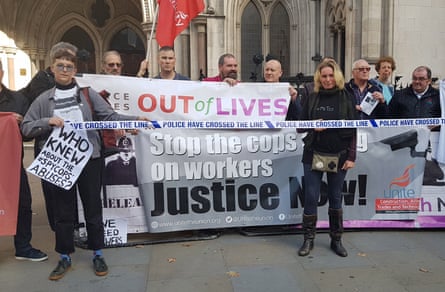
Wilson met Kennedy in the autumn of 2003 when she was training as a translator and was an active member of the environmental advocacy group Earth First! Kennedy was deployed on Operation Penguin, then headed by Nottinghamshire police. (Later, his management moved to the Metropolitan police.) He sat beside Wilson at a meeting of a group known as Nasa (Nottingham Assembly of Subversive Activists) held at the Sumac Centre, a community space in Nottingham. Ironically, Wilson now knows that one of the Sumac’s founder members, Rod Richardson, was also an undercover officer – someone she already knew, who might have briefed Kennedy about her in advance.
“As soon as I found out that Mark had been a cop, the questions started,” says Wilson. “Was I the target of the job, a tool of the job or a perk of the job? Was he just looking to sleep with a popular blond woman 10 years his junior? It’s impossible to know.”
From the start, the two seemed to have lots in common. They both grew up around the Battersea/Wandsworth area of London. They loved caravans and country music. But in truth, Kennedy had been raised in Kent, and when he moved on from Wilson to his next undercover relationship, he was suddenly more interested in whisky tasting and drum’n’bass. “They were trained in emotional manipulation, and one of the things that all the women who were in relationships with these men describe is this mirroring, where the officers really shared our interests,” says Wilson.
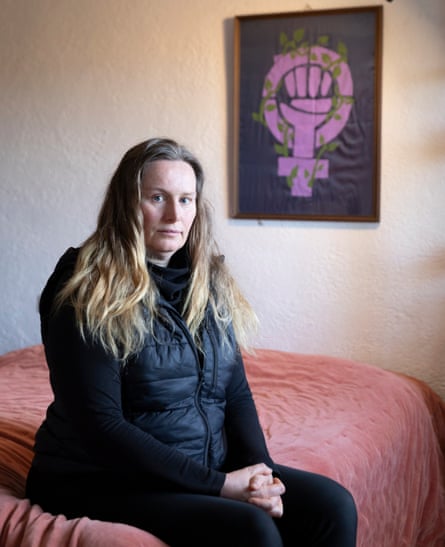
Kennedy presented as a slightly damaged working-class boy from a broken home, recovering from a dark period of drug dealing but now working as a delivery driver. He was enthusiastic about everything – charming, attentive, curious. “We got together very soon after meeting,” says Wilson. Within months, Wilson had moved into the house that Kennedy was already sharing with her friends. “He was the first partner that I moved in with, so that was quite a big decision.”
The relationship continued until February 2005, when Wilson moved to Spain (“Text from Source,” the police log reads, “Katja is just pulling out of Dover”). “I’m very lucky that I left him,” she says. “I was very young. I wasn’t looking to settle down. He made a big thing about how I broke his heart, though obviously it wasn’t like that. I went on to live in Barcelona, then Berlin, and he visited me everywhere. He was one of my closest friends.”
It was October 2010 when Wilson learned Kennedy’s true identity. He had been exposed when “Lisa”, his girlfriend after Wilson, had found a passport in his real name and a phone with messages from his children: not only was he a police officer, but he was also a married father of two. When someone called Wilson to tell her about it, she was weeks into a medical degree at the University of Barcelona, studying to be a doctor. “I was focused, dedicated and on this path,” she says. “This totally derailed me.”
As an experienced activist, Wilson had heard of police infiltration. “It wasn’t something I’d never thought about,” she says. “But Mark was somebody I’d loved for a long time. I’d had dinner with him just two months before. What none of my political background prepared me for was that the principal emotion on finding out that someone was a police spy would be grief. It was as if he’d died – but he hadn’t, he’d never existed. He was gone but he was also out there giving interviews.”

After his exposure, Kennedy hired the publicist Max Clifford and appeared in the media. “Watching was so strange,” she says. “I got the impression that he wasn’t sure who he was any more. In the first appearances, he’d cut his hair and appeared very strait-laced, very much ‘Mark the cop’. But as time went on, he let his hair grow and looked punky. In a documentary, he appeared in an All Cops Are Bastards T-shirt.”
One of Wilson’s early reactions was to email him. “You have all these questions,” she says. “‘Why?’ is a big one. You think, ‘Well, Mark has all the answers,’ but I’m not sure he did.”
Part of their email exchange is included in her book, but Kennedy is vague and dishonest. One of his replies reads: “I hope you will understand when I say that so many things never went anywhere. You and others were never mentioned by me ever … There is no black and white only a huge grey area in which I was trapped.”
“I think he’s a very messed-up man who doesn’t know which way is up,” says Wilson.
The impact on her life was devastating. “There was a lot of insomnia, waking early in a cold sweat, like something was really wrong but not knowing what,” she says. “Only years later, I realised that I no longer listened to music and I’d stopped reading books. I just couldn’t put my emotions at risk. Medicine is a very demanding course. I couldn’t focus, I couldn’t concentrate.” At the end of her first term, she failed the exams by one mark. “The tragic thing is that I could probably have gone to the uni and got some support and time away, but how can you begin to explain this? I didn’t even know where to start. Would they think I was some kind of terrorist?”
Instead, Wilson left the course – and that was how she was able to pursue her legal claim to the end. Initially, she joined seven other women in a civil action led by lawyer Harriet Wistrich from the Centre for Women’s Justice against the Met, in which five officers were implicated. However, all but Wilson settled with compensation and an unreserved public apology from the police, who refused to give answers and information through a policy of “neither confirm nor deny”.

The fact that Wilson had lost a potentially lucrative medical career meant there was funding for her to fight on with a human rights claim. It took years but, finally, the police were forced to surrender files; they arrived randomly, in boxes, pages upside down, passages redacted, all jumbled, in no chronological order. A team of friends and family had to help her sort through, index them and make sense of it.
Perhaps the most striking aspect of Kennedy’s reports, as set out in Wilson’s book, is how trivial they are. (“Source is engaged ‘Carol singing’ outside Putney rail station with Katja, family and friends raising funds for Amnesty International.”) In fact, one of the presiding judges in Wilson’s case made a similar observation. At one point, Kennedy mentions activists’ plans for “an aquatic assault on ships”. In reality, this was a dozen people riding inflatable dragons to stop a ship docking for an arms fair.
“It was absolutely disproportionate,” says Wilson, “but you can’t think of this as an operation with ‘higher level’, ‘greater good’ importance. What you see when you look at the files is that Mark had a job. His handler had a job. His handler’s boss had a job. And they wanted to keep their jobs so they needed to justify what they were doing. I’m sure Mark and his handler were absolutely aware how petty it was, but every intelligence report helped keep them in work. Understanding that took me quite a while.”
As Mark Stone, Kennedy didn’t just passively observe – he influenced outcomes. “He was one of the core group, proposing, organising, recruiting for the actions that were then used to justify his deployment,” says Wilson. She is unconvinced by the argument that, in some contexts, undercover policing is an important tool. “What we’re seeing is that it’s very, very dangerous. You’re putting people into positions of power and separating them from all the social controls that make them behave respectably. They’re anonymous. Their families don’t know what they’re doing and the people that they’re doing it to are never expected to find out.
“When the police are asked if they considered the damage that would be caused when women realised the truth, the answer they keep giving is that ‘no one was ever supposed to know’. And if no one will ever know, it means they’re free to do whatever they want.”
Wilson’s legal case took more than a decade, and in 2021, the investigatory powers tribunal found the Met responsible for “a formidable list” of human rights violations during an “unlawful and sexist” operation. Compensation was settled the following year. Along the way, Wilson qualified as a nurse and now works abroad.
Her life has changed fundamentally. “One of the most insidious and damaging things is the loss of trust,” she says. “Not trusting strangers is OK, but this is not trusting people close to you. It ruined my life in some ways: until this happened, I’d always lived in collective communities, but slowly, slowly, it became impossible. You can’t live in a community if you don’t trust people.” Her political activism changed, too. “I don’t feel comfortable going into those spaces, so my activism is more or less limited to working with victims of spy cops.”
At present, much of her focus is on the undercover policing inquiry, ongoing since 2014. “We are chipping away, getting answers, but it’s a lot like getting blood out of a stone.” Although the inquiry’s original chair had said that women deceived into relationships would be given the fullest possible accounts, including the man’s real name, this hasn’t happened. Earlier this year, one officer, known as HN1, was allowed to give all his evidence anonymously.
Kennedy’s appearance is likely to be next year. “I hope he’ll be truthful and help some of the other people he has damaged to understand why,” Wilson says, “but I really don’t hold much hope. I don’t know where he is or what he’s doing, and I don’t know that he would have anything useful to tell me. That ship sailed a long time ago.”
Disclosure: Unravelling the Spycops Files by Kate Wilson is published by Weidenfeld & Nicolson on 29 May (£20). To support the Guardian buy a copy at guardianbookshop.com. Delivery charges may apply.

.png) 3 months ago
34
3 months ago
34


